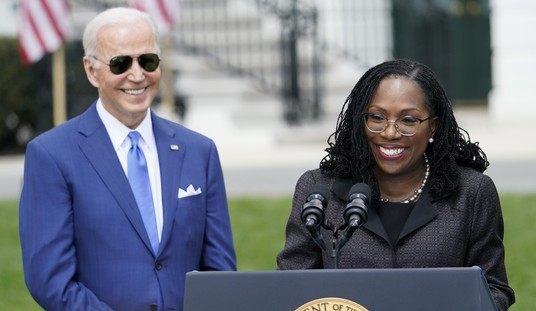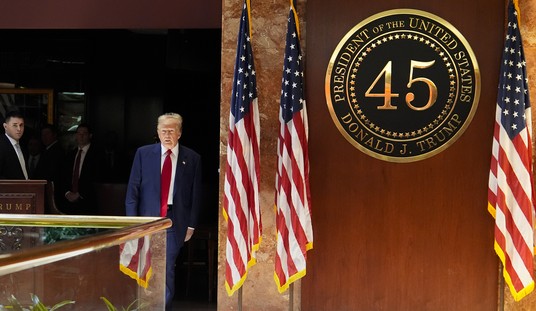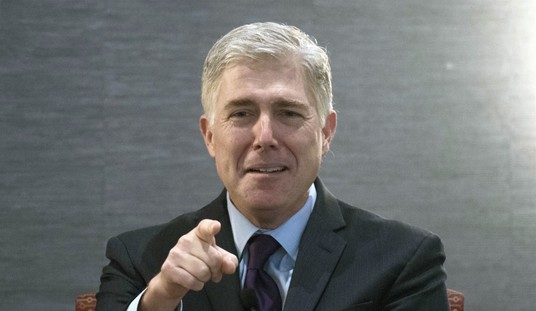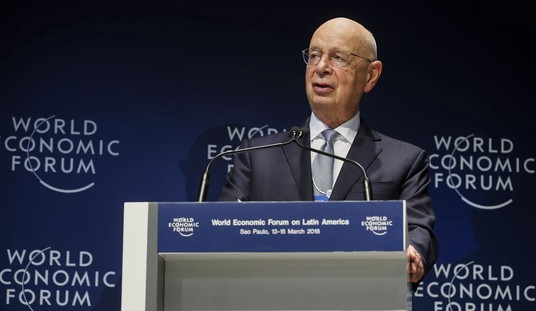We less government types love federalism – rightly defined, of course:
“A system of government in which states unite and give up some of their powers to a central authority.”
That is precisely what happened in what became the United States.
The thirteen colonies had just rid themselves of Britain. And by way of creating a new governmental system, drafted and ratified a Constitution.
The Constitution gave the federal government (very few) expressly identified and defined powers – and left the rest to the states (what the colonies would become) and We the People.
Because they wanted less government – they gave the federal government only the powers the states by themselves couldn’t handle.
To wit: Mexico is invading California, New Mexico, Arizona and Texas. Which is a geographical anomaly – only those four states share a border with Mexico. But from those states – the invaders invade the rest of the nation.
It is not left to those four states to deal with the invasion. It is our national sovereignty that is under assault – so it is the national government’s responsibility to stop the invasion.
Conversely: The Internet. The World Wide Web – is a WORLD Wide Web. You can not have fifty different states imposing fifty different sets of Internet regulations. So the federal government sets Internet policy – and then negotiates with the rest of the world how our networks interact with theirs.
However: What the states do with the Internet once they get it – is again a federalism situation.

To wit: Online gambling. Each state should decide for itself how much – if any – online gambling it will allow.
The United States Justice Department is currently revisiting its interpretation of the 1961 Wire Act – and how they will apply it to online gambling:
“In 1961, then-Attorney General Robert F. Kennedy proposed a package of bills, including the 1961 Wire Act, in an attempt to get at the heart of mafia organizations: their money.
“Soon after its passage, the Wire Act was superseded by other more effective tools to target organized crime, such as the Racketeer Influenced and Corrupt Organizations Act (RICO) in 1970.
“It wasn’t until the late 1990s that the Wire Act sprang back into prominence as a tool to prosecute online gambling offenses. However, from the beginning of the Wire Act’s use in the online gambling arena there has been debate about the Act’s scope, including if it can be applied to Internet gambling, and…whether or not its prohibitions extend beyond sports gambling.”
Now hold it right there. You need not be an Internet historian to know – the Internet did not exist in 1961, when The Wire Act was passed.
So it is quite difficult to argue that the legislative intent of the Congress that drafted The Wire Act – was to regulate the Internet.
The fact that we have allowed the federal government to cite The Wire Act to in any way regulate the Internet – is a gross violation of the Constitution.
To cite The Wire Act as a way to stop states from allowing online gambling – is a gross violation of federalism.
If you want a law that applies to online gambling – perhaps write a law that actually mentions the Internet. Which means you should probably write it – after the advent of the Internet.
How states get the World Wide Web – is a federal prerogative. What states do with the World Wide Web once they get it – is their prerogative.
If this state or that wants to allow online gambling – it’s their Constitutional call.
“The Department of Justice is preparing an opinion that will likely say that the Wire Act applies to all forms of online gambling and not just sports betting.…
“That would be an apparent reversal of the 2011 Office of Legal Counsel opinion that the Wire Act only applies to sports wagering.”
Get that? The Feds have been prohibiting online sports gambling – citing The Wire Act. And is now looking to prohibit ALL online gambling – citing The Wire Act.
None of which is Constitutionally or federalism-y kosher.
There are several additional problems with this.
Four states – Nevada, New Jersey, Delaware, and Pennsylvania – have legalized online gambling. Which this capricious regulatory change will immediately crush.
We don’t actually have an Attorney General overseeing the Justice Department about to issue this sea change. President Donald Trump has nominated William Barr. The Justice Department should wait until he is confirmed – and we should then ask him what he thinks about this.
And speaking of the Trump Administration – the President’s acting Chief of Staff is Mick Mulvaney. Prior to holding a few different Administration gigs – Mulvaney was a US Congressman. He was not a fan of the Feds expansive use of The Wire Act:
“Rep. Mick Mulvaney (R-SC) strongly…(argued) that if the technology exists to allow some states to legalize and regulate themselves online gambling in such a way that residents of states that prohibit, can be prevented from accessing it from those other states, that the federal government has no basis under the Commerce Clause to prohibit or regulate online gambling within the borders of individual states….
“Precisely that ability through technology exists and is being employed in the three states (now four) have have legalized and are effectively regulating online gambling …(former Nevada state gaming board member Mark) Lipparelli pointed out….’From a regulatory and law enforcement prospective, Nevada, New Jersey, and Delaware have been successful. Where there were concerns… these states have had good success.’…
“‘(This) sounds like you’re for federal control…(the reinterpretation of the Wire Act) should not legalize gambling activities that states make illegal,’ Mulvaney asked, ‘should the federal government also make illegal that which others states have made legal?’”
An excellent question – that points out the Pandora’s Box of anti-federalism this ever-swelling Wire Act decision would even further open.
This certainly isn’t an issue that cleaves the conservative base. Most see it for what it is.
Poll Finds 9 of 10 Conservatives Agree Online Gambling Ban is Crony Capitalism
Wait – crony capitalism, you say? Who’s the crony? Behold brick-and-mortar casino billionaire Sheldon Adelson. This is from 2014:
Seeking to Ban Online Betting, G.O.P. Donor Tests Influence:
“A push by the billionaire casino magnate Sheldon G. Adelson to outlaw online gambling has ignited a bitter civil war in the gambling industry, dividing one of Washington’s most powerful interest groups and posing a major test of the Republican donor’s political clout….
“Mr. Adelson, whose $38 billion fortune makes him among the richest men in the world, poured roughly $100 million into Republican campaigns in 2012, and he is known for pushing ideological fights in Washington. The battle over online gambling shows how he also lobbies for his business….
“Mr. Adelson’s effort officially kicked off on Wednesday, when lawmakers, including a senator, Lindsey Graham of South Carolina, who has accepted tens of thousands of dollars in donations from the businessman and his family, introduced legislation originally drafted with Mr. Adelson’s lobbyist.
“The bill would close a three-year-old loophole in federal law by banning online gambling….”
That “loophole” – was the Justice Department’s 2011 ruling The Wire Act only prohibited online sports gambling. The bill Adelson’s lobbyists wrote – would have banned all online gambling.
Having failed to pass his bill – for now half-a-decade-plus – Adelson is instead looking for a Hail Mary unilateral fiat from the Justice Department.
He shouldn’t get it.
States should decide for themselves whether or not they want online gambling.
A single billionaire uber-crony – shouldn’t make fifty different states’ decision for them.














Join the conversation as a VIP Member